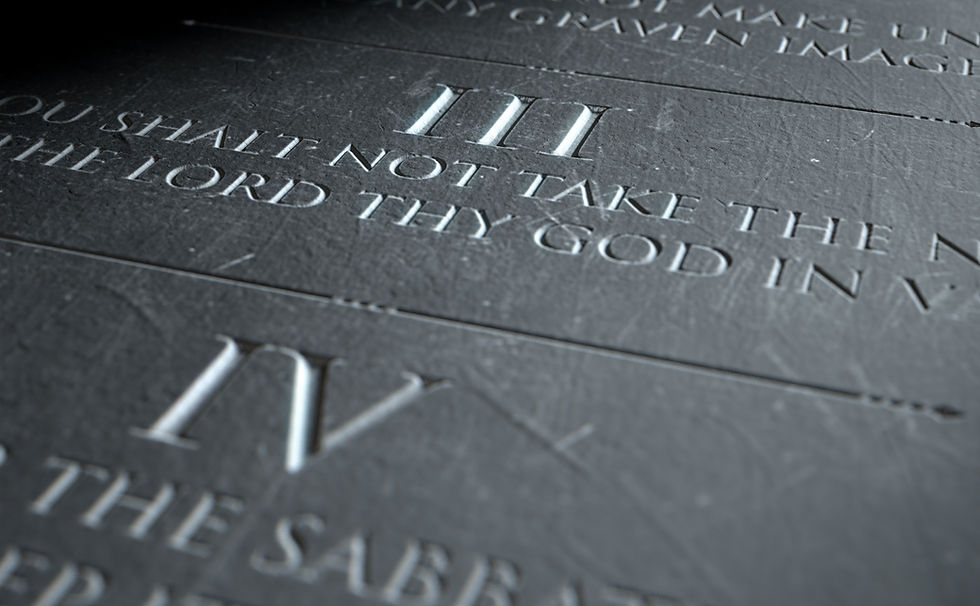Texas Legislature Protects Religious Belief from Government Discrimination
- TCCRI Staff

- Oct 30, 2019
- 3 min read
Updated: Sep 13, 2024

“Chick-fil-A” was recently voted the number one limited-service restaurant in the country in customer satisfaction. But it has been targeted by activists and government officials because of its traditional values and its support of other organizations that share those values. To address such discrimination, the Texas Legislature enacted Senate Bill 1978, which protects freedom of religious expression for all Texans. Chick-fil-A became a symbol in the debate over SB 1978, but the bill is far more important than any single business.
It should be axiomatic that governments may not discriminate on the basis of religious belief. Indeed, though such actions run afoul of the First Amendment, that did not stop the San Antonio City Council from voting to exclude Chick-fil-A from being a vendor at the San Antonio airport earlier this year. Council members’ rationale for excluding the most profitable fast-food chain in the country was that the popular fast-food chain has a “legacy of anti-LGBT behavior” and that visitors to the San Antonio airport should not be greeted by a “symbol that, for many people, is a symbol of hate.”
The owners of Chick-fil-A have never shied from the religious inspiration behind their efforts, with an avowed purpose of the company being “To glorify God by being a faithful steward of all that's entrusted to us and to have a positive influence on all those who come into contact with Chick-fil-A.”
Many Americans will recall the 2012 boycott of Chick-fil-A and the response of a “Chick-fil-A Appreciation Day.” The boycott was sparked when Dan Cathy, the company’s then-president, made public comments in support of the Biblical understanding of marriage as a union between a man and a woman. Consistent with those remarks, Chick-fil-A over the years has donated to charities that support the same understanding of marriage. The day before the San Antonio Council’s action against the restaurant, the liberal organization, Think Progress, published a story in which it stated that Chick-fil-A’s tax filings indicated that it had made donations to several organizations “with a record of anti-LGBTQ discrimination,” including the Salvation Army and the Fellowship of Christian Athletes. As the record shows, these organizations’ beliefs about marriage and sexual morality were the primary reason the city council took action against Chick-fil-A.
Notably, there was no claim that Chick-fil-A discriminated against employees or customers on the basis of sexual orientation. Indeed, the contract under which a Chick-fil-A restaurant would have opened in the San Antonio airport would have been subject to San Antonio’s local ordinance prohibiting such discrimination, and the council was aware that Chick-fil-A voiced no objection to this ordinance. Rather, the company’s sin in the eyes of the council was that it dared to contribute to organizations that hold religious beliefs with which the council disagrees. This sentiment is not unique to San Antonio. In the aftermath of the 2012 controversy, political leaders in Boston, San Francisco, and Chicago voiced similar opposition to the idea of Chick fil-A expanding in their cities.
The San Antonio council’s actions openly discriminated against commonly held beliefs and actions taken based on those beliefs. Open discrimination of this kind chills support for a host of religiously-oriented charities and organizations. If such discrimination is tolerated, then it is logical to expect that a person who donates to a local Catholic school could face discrimination from a city if he or she later wished to lease property from the city for business purposes. This is viewpoint discrimination, and all Americans, irrespective of their political beliefs, should view it as an assault on the First Amendment.
The Texas Legislature recently enacted Senate Bill 1978, which prohibits governmental entities from taking adverse action against a person because of that person’s membership in, affiliation with, contribution to, or support of a religious organization. Invoking the bill’s provisions, third parties have already sued San Antonio over its opposition to Chick-fil-A. Importantly, an organization cannot qualify as a “religious organization” under the bill if it engages in activities that would revoke its tax-exempt status, such as advocating discrimination on the basis of race or national origin. Under the bill, companies such as Chick-fil-A and charities such as the Salvation Army--a charity with a long and impressive record of helping people from all types of backgrounds--will be free to exercise their religious beliefs without being penalized by the government.




